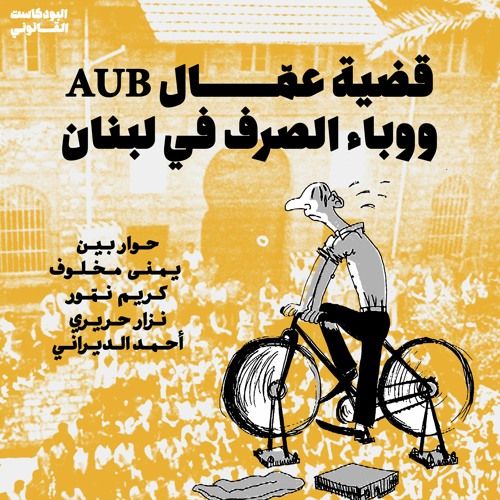Qanuni Podcast (S02 E26): The Case of the AUB Workers and the Dismissal Epidemic in Lebanon

Episode 26 of the second season of Legal Podcast: “The Case of the AUB Workers and the Dismissal Epidemic in Lebanon”
In light of the rapid spread of dismissals since early October 2019, the last of which was the dismissal of more than 850 male and female workers at the American University of Beirut, workers in Lebanon are facing something similar to a pandemic. According to studies, the number of workers’ dismissal reached around 160,000 cases before the end of 2019. The outbreak of covid-19 exacerbated the “dismissal pandemic” as the unemployment rate in the country reached 40% and the poverty 50%. The situation today can be considered similar to the situation a hundred years ago during the time of famine and the Spanish influenza pandemic, days before the fall of the Ottoman Empire. After shedding the ligh on the issue in the end of 2019 following the economic collapse, we want to highlight again the endeavor of some employers to anticipate losses by getting rid of the burden of salaries. Some employers are rushing to reduce the salaries of their employees or even to dismiss employees collcetively under two main pretexts: Economic reasons and force majeure, often without taking into account the provisions of the labor law in this regard, especially in terms of the necessity to inform the Ministry of Labor and consult with it in this regard.
This practice would not have been possible had it not been for the culture of disregard for legal texts promoted in the hostile space of neoliberalism, in contrast to weak institutional protections for workers in Lebanon (whether at the level of trade unions, the Ministry of Labor, or even the judiciary). However, the primary function of the law is to define this concept of justice through redistribution and control of power. Indeed, the function of the labor law in particular goes further to find a general system of social protection for workers (ordre public social) through which the the employers’ oppression and exploitation of workers is prevented.
So what about the termination of work contracts under the pretext of economic reasons or a force majeure, which is used by employers today due to the economic collapse and the outbreak of the Corona to pay their wages? In conventional civil law logic, it may seem counterintuitive. It is recognized that there is an economic collapse in the country and that the outbreak of the Corona has formed a force majeure for a number of institutions and sectors, which justifies the termination of contracts. But this abstract logic assumes that the parties to the contract are equal, and it does not take into account the balance of power in labor relations, nor does it take into account the worst social and economic catastrophe that the country has witnessed. How does this law protect workers in times of collapse? What is the engineering it puts in place to achieve equitable social justice far from “justice of the interests of the most powerful”? Consequently, what are the available options for workers in times of collapse to access justice and preserve their rights?
For more information on this issue, press the following links:
The Ministry of Labor is distancing itself in the American University case: Collective Payment Arbitration
tinyurl.com/y35l3oqu
Where is the spring of the workers in the time of collapse?
tinyurl.com/y6krh442



